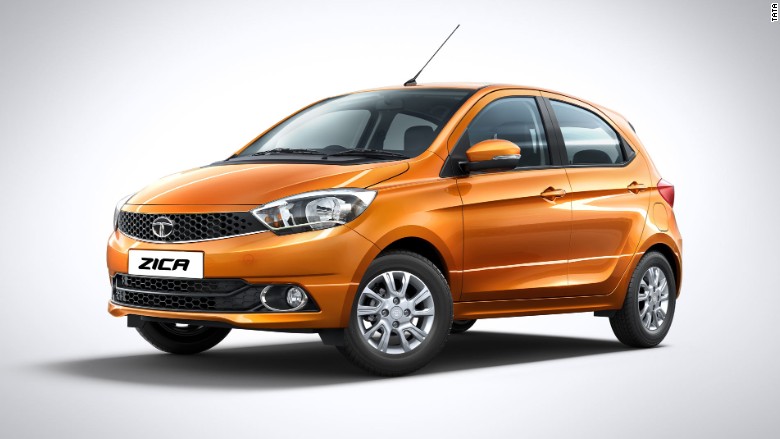
Tata Motors has been forced to change the name of its new hatchback -- the Zica -- just days before its official launch.
The automaker said it would re-brand the car to avoid calling to mind Zika, the mosquito-borne virus that has caused a public health emergency in the Americas.
The hatchback will debut this week at a car show in New Delhi with its original name -- derived from "Zippy Car" -- but a replacement will be chosen within weeks.
Tata, the owner of Jaguar Land Rover, had already publicized and promoted the name, along with the model's stylishness and "peppy driving experience."
Related: Fighting the Zika virus with mutant mosquitoes
The Zika virus, transmitted by the aggressive Aedes aegypti mosquito, has spread to at least 24 countries. The World Health Organization estimates 3 million to 4 million people across the Americas will be infected with the virus in the next year.
It's commanding worldwide attention because of an alarming connection between the virus and microcephaly, a neurological disorder that results in babies being born with abnormally small heads.
India, which is home to 1.3 billion people, is particularly susceptible to mosquito-borne illnesses. Dengue fever, a close relative of Zika, is common in the country.
Related: 5 things you need to know about Zika
In the past, automakers have occasionally chosen names for cars that did not translate well across languages and cultures. The most infamous example is Chevrolet's Nova, because in Spanish, "no-va" means "won't go." Despite the name, the car sold relatively well in Latin America.
The atrocities committed in recent years by the Islamic militant group ISIS, meanwhile, have created a headache for companies operating under that name.
California biotech company Isis Pharmaceuticals changed its name to Ionis Pharmaceuticals after admitting it was struggling with the "negative connotations."




